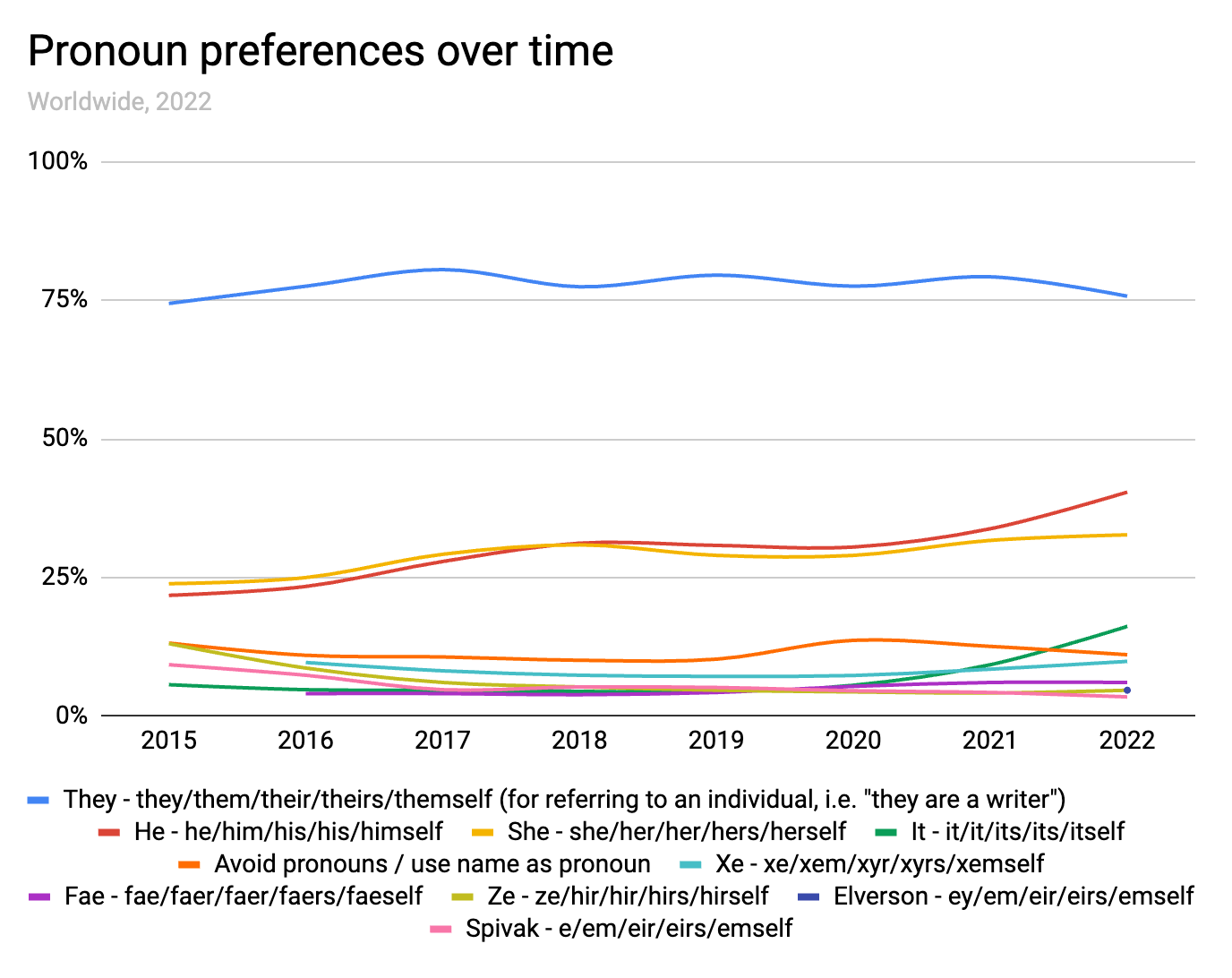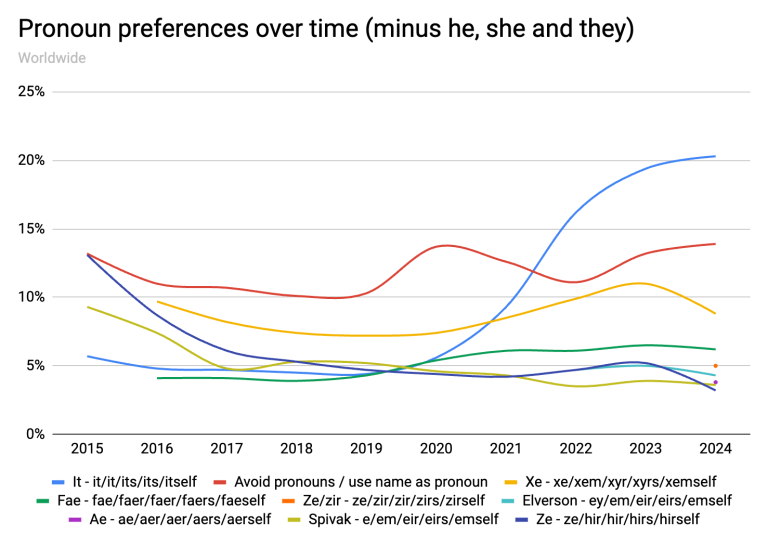
Neopronouns like ey/em, ze/zir, and xe/xem are much more convenient than they/them, since the fact that they're singular removes ambiguity about whether the pronoun refers to a single person or a group of people, and obviates the need for differing verb conjugations depending on the pronouns of the person being discussed.
(Third person pronouns, not pronouns like "you" or "I".)
Unfortunately, nobody can agree on which one to use, and it doesn't seem to be getting better.

If any large, reliable survey shows that at least 75% of nonbinary or otherwise gender non-conforming people who do not prefer he/him, she/her, they/them, or "no pronouns" choose the same option, this market resolves YES.
People are also trading
@NLeseul Yep, consensus has already landed on they/them - and once a consensus is established for this sort of thing it's extremely hard to change especially without a strongly compelling reason (which the grammatical ambiguity is not for most people).
"They" is grammatically singular, it's just also grammatically plural too, which seems to be the real crux of your question. The title question's current phrasing, in my opinion, immediately resolves to YES, as 75% of respondents on the graph you posted "agree" on they as a grammatically singular pronoun "They".
Your resolution criteria seems closer to the title: "Will there be agreement on a single, solely grammatically-singular, gender-neutral pronoun before 2035?" or "Will there be agreement on a single neopronoun to use before 2035?"
@IsaacKing I do understand that part, yes, "you" was given as en example of a technically plural pronoun used in singular most people don't seem to have a problem with, certainly much less than with "they"
@CodeSolder Oh, I see. Yes, needs to be treated as singular in all contexts. I can replace "he" with "she" in any sentence, but I can't do the same with "they".
@XComhghall I had only thought that about "man"/"men", (in reference to mankind,) not about "he". Share a good example?
@TylerColeman Old English hē from Proto-Germanic *hiz “this, this one”, is used for neutral gender. As you said, man, he, etc. should be nouns and pronouns of all people. I think that specifying the gender in general is unnecessary.
